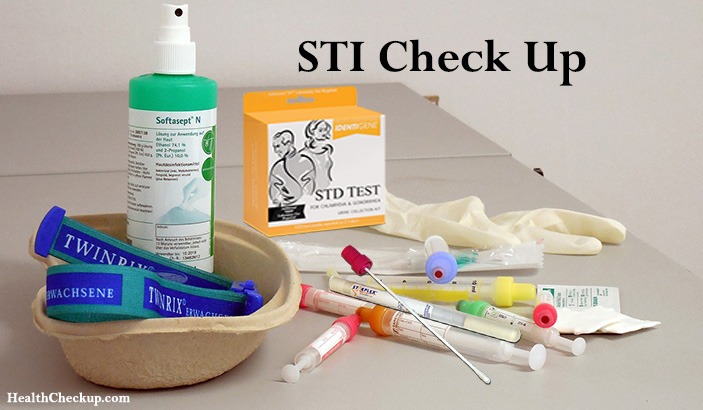The rate of sexually transmitted diseases or STIs is going up very rapidly throughout the world, resulting in high number of ST infected persons. Sexually active and sexually promiscuous persons are at extreme risk of being infected by STI. An STI health check up is the only way to make sure whether you’re infected or not. If you feel that you are at risk, don’t you think that you should undergo a STI screening immediately?
People who have long-term partners and are faithful to each other do not have anything to worry about, but people who frequently keep changing their bed partners stand every chance of picking up an STI. Then again, people who are homosexual or bisexual also are at a risk of acquiring the dreaded infection. Have an STI testing done immediately if you feel that you have been sexually indiscreet.
People who have been infected by STI may feel perfectly well and may not see or feel any symptoms, but it is possible that a STI or sexually-transmitted infection could have established itself in your genitals or even in your throat. Sexually transmitted infections or STIs are unwelcome guests in our lives, especially our sex lives. And, this can have serious health consequences if they aren’t diagnosed and treated appropriately. Having a STI health check up and STI test is the only way to confirm if you are infected or not.
Have you wondered what would happen if you don’t undergo an STI check up? If not treated, a few bacterial infections, such as chlamydia and gonorrhea, can leave a person infertile or suffering with chronic pelvic pain. Viral infections like Herpes, Hepatitis B and C and HIV are sure to be with you for life once you acquire them.
What are Sexually Transmitted Infections(STI)?
Sexually Transmitted Infections or STIs are infections that are passed on from one person to another through sexual intercourse or other close physical activities such as kissing, oral, or anal sex. Bacteria, viruses or parasites can cause STIs, and in many cases, the infection will not show any significant symptoms. Blood-borne viral infections, such as HIV and hepatitis B and C, can be transmitted from person to person via shared needles.
Symptoms to watch for to undergo a STI Health Check up:
Most of the people do not display any symptoms, whatsoever, but the infection can cause a number of serious issues including infertility.
People who notice the following symptoms should undergo an STI Health check up at the earliest.
STI Symptoms Common to Both Women and Men are:
- Painful urination
- Itching, burning, or tingling sensation around the genitals
- Blisters, sores, spots or lumps around the genitals or the anus
- Black powder or tiny white dots in your innerwear – this could be droppings or eggs from pubic lice
STI Symptoms in Women:
- Yellow or green vaginal discharge
- Smelly discharge
- Bleeding between periods or after sex
- Painful sexual intercourse
- Lower abdominal pain
STI Symptoms in men:
- Discharge from the penis
- Irritation of the urethra
Indications of these symptoms does not necessarily mean the presence of an STI, but it’s better to have these symptoms looked into by a doctor through an STI Health check up.
What tests are done to confirm STI?
The following STI tests are prescribed to determine sexually transmitted infections:
- Urine Test: This test is done to identify chlamydia and gonorrhea.
- Vaginal or Cervical Swab Test: This test is done on women to identify organisms such as gonorrhea and Trichomonas in the laboratory. A Pap smear is also done at the same time.
- Anal, Urethral or Throat Swab test for men: Swabs from specific sites help to ensure that chlamydia and gonorrhea infections are ruled out.
- Blood Test: A blood test is used to detect the presence of antibodies. Antibody tests are used to diagnose HIV, hepatitis A, B and C, and syphilis. Most infections can first be detected through laboratory tests only after a certain period.
Screening tests can be inconclusive at times and if there is a high suspicion of STIs then you might have to repeat a test after some days to weeks or go for confirmatory tests.
We can understand that it would be quite embarrassing to talk to a doctor or a specialist about your problem or your sexual health, but it is extremely essential. If you suspect that you have an STI, it is vital that you do not have sex until you consult your doctor – this would ensure that you don’t pass the infection on to others. You would also be advised about the use of condoms that will protect your partner from STIs. Remember that the best way to protect yourself from getting or passing on an infection is to use a condom every time you have sex. Another thing that you should bear in mind that having an STI in the past doesn’t make you immune to it – you can get the same infection again. So, do not take chances – get an STI screening done today!
Medically Reviewed and Updated By









